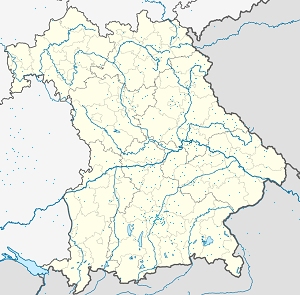Petiționarul nu a depus/preluat petiția.
Even in 2020, the church books of the Roman Catholic Diocese of Regensburg can only be reviewed if you attend the Central Archives in person, because microforms were used to file those books. Therefore there are two aspects concerning archiving that should be revised: The accessibility of those microforms is insufficient and filing documents by using microforms clearly is an outdated technique. Here is what we want to accomplish by this petition: We want the Central Archives of the Diocese of Regensburg to digitize their church books and to provide them online for geneological researchers.
motive
The digital age is now. That’s why the number of archival institutions who digitize their archive files is growing. Some of these institutions, including the Roman Catholic Dioceses of Passau, Osnabrück or Münster and the Archdiocese München-Freising (1), have already started providing those files online, as far as those documents have not been protected by copyright. Currently, the Roman Catholic Diocese of Regensburg is still refraining from striking this new path.
Digitizing church records is a win-win situation for both the Archives and geneological researchers. Here is to what extend the Central Archives benefit: Digitizing archive records ensures a safe way of preserving valuable data on the one hand and is space saving on the other. Microfiches would no longer have to be stored. As microforms are commonly reduced to about one twenty-fifth of the original document size, they usually are of inferior quality. Digitized documents, in contrast, are of the same quality as the original ones. The Central Archives of the Diocese of Regensburg sure get a lot of letters and emails concerning genealogical research. Digitizing those church records will reduce workload related to those requests and thus enable archivists to dedicate themselves to their actual duties. It is a given that we, the petitioning geneological researchers, benefit likewise. Being descendants of emigrants, many of us still live in the foreign countries our ancestors once chose. Therefore having to take a trip to attend the Central Archives in person implicates financial load and might make huge demands on the researchers‘ time depending on their home country. Sometimes health issues or barrier of language hold off researchers from taking the trip to the Archives. Digitizing church records enables people to look into their family‘s history who otherwise wouldn’t be able to do so. Internet has opened up geneological research to a whole new generation of researchers, most of them employed persons conditioned by their age. But going over church records can be a time-consuming preoccupation and is, by force of circumstance, bound to limited opening hours in the Central Archives of the Diocese of Regensburg. It goes without saying that combining job-related timetables to geneological research can be challenging. Digitizing church books would come in handy for all geneological researchers holding a job.
Going over archived microforms inevitably goes along with using desktop readers. Sitting in front of those readers demands a stiff sitting position on the one hand and can therefore cause postural deformities little by little (2) and on the other hand demands a great deal of one’s eyes. Those possible health issues affect especially professional genealogical researches.
However, it must be mentioned that digitizing church books and providing them online afterwards costs a lot of money and human resources. Fewest researchers will be expecting the allocation of the church books to be permanently free of charge. Archion f.e., an already existing portal where mostly archived documents concerning the Protestant church are being provided, takes a fee of 17,90€ per month from private researchers (3). Most genealogical researchers will supposedly be willing to at least partly refund costs caused by digitizing the church books by paying fees, for attending the Archives in person isn’t free of charge either.
Finally, it has to be said that until the establishment of civil registry offices, clergies had been the only ones to record common people’s data. All the credit is due to clergies and everyone engaging in family history is well aware of that fact. But all the efforts taken to record those data would be to no purpose if sharing those was to be impeded unnecessarily – especially in times when technological change actually was to make sharing easier.
(1) http://data.matricula-online.eu/de/deutschland/
(2) https://catholiccultures.hypotheses.org/348 (3) https://www.archion.de/de/das-portal/kosten/
Link către petiție
Această petiție a fost tradusă în următoarele limbi
știri
-
Petition wurde nicht eingereicht
pe 29.07.2021Liebe Unterstützende,
der Petent oder die Petentin hat innerhalb der letzten 12 Monate nach Ende der Unterschriftensammlung keine Neuigkeiten erstellt und den Status nicht geändert. openPetition geht davon aus, dass die Petition nicht eingereicht oder übergeben wurde.
Wir bedanken uns herzlich für Ihr Engagement und die Unterstützung,
Ihr openPetition-Team
Dezbatere
Niciun argument CONTRA încă.

